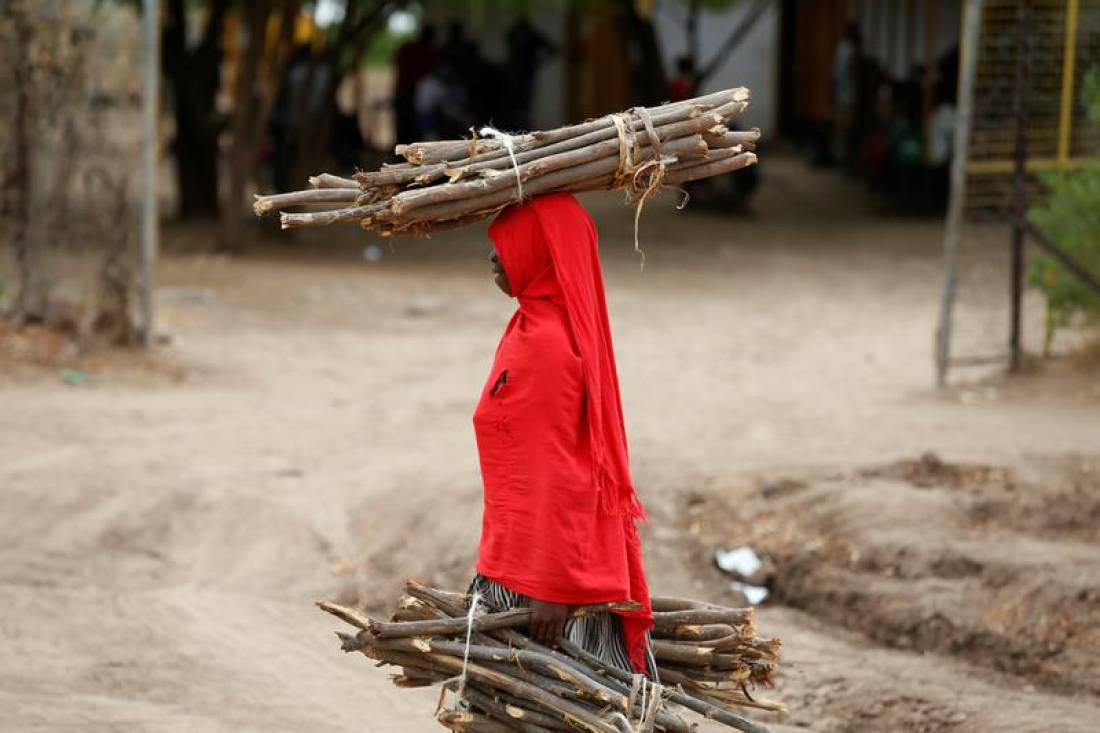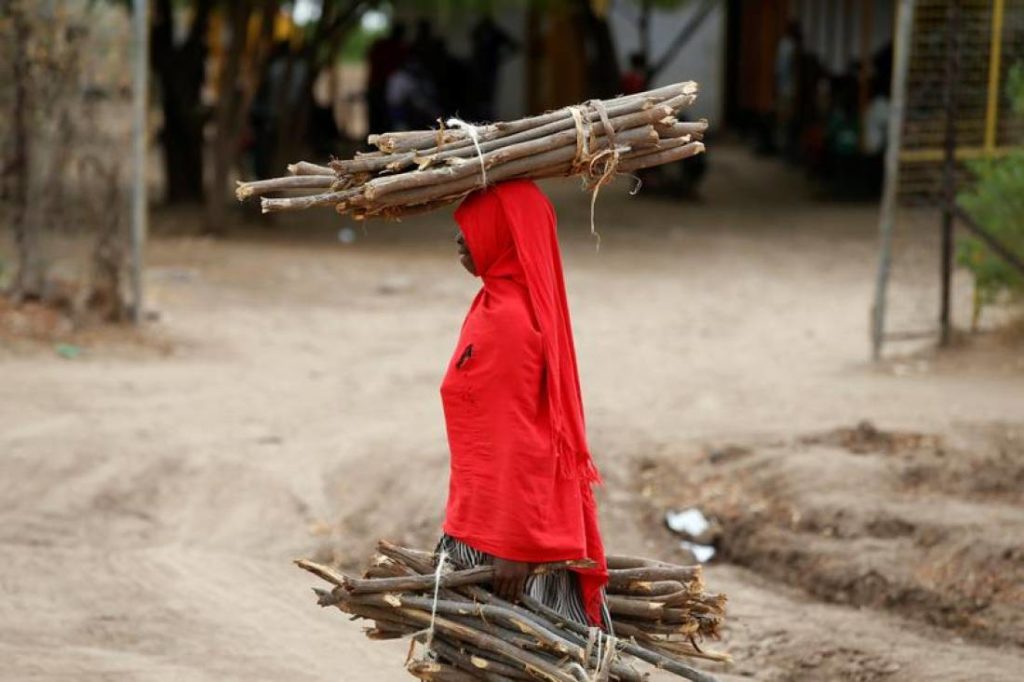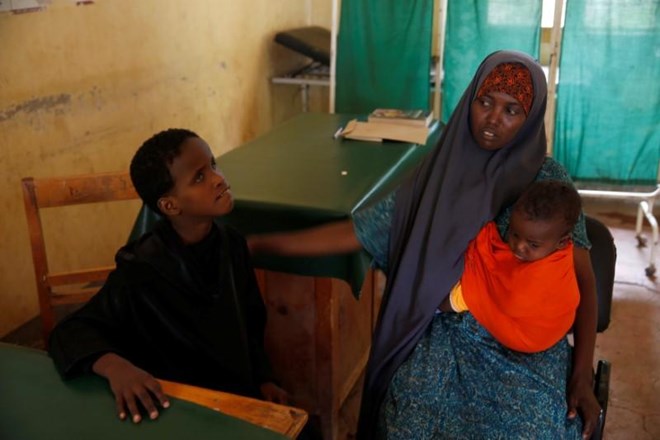In Kenyan refugee camp, hope of new life in U.S. fades and suicide rate rises


KAKUMA, Kenya (Reuters) – Knives. Wire. Battery acid. Rat poison. Rope.
All are items which aid workers say they have confiscated from refugees in the Kakuma camp in northern Kenya in the last few months because of fears they might use them to kill themselves.
Nine refugees have committed suicide in the dusty, sprawling camp since early 2017, compared to three in 2016, Alex Kalatu, a mental health officer and psychologist for U.S. aid group International Rescue Committee (IRC), told Reuters at the camp.
Doctors did not comment on the reasons for the suicides.
Conditions in the camp, a temporary home for 185,000 refugees from Somalia, South Sudan and other states hit by war in East and Central Africa, are harsh. Rows of thatched or aluminum huts provide little respite from blistering year-round heat. Plots are cordoned off by trash-strewn fences of thorns.
Aid groups say the mood has deteriorated at Kakuma, close to the border with South Sudan, since Washington started getting tougher on immigration.
The United States is one of the main providers of aid and has overwhelmingly been the main destination for those who are resettled. The U.S. flag is emblazoned on school walls, on sacks of food aid and on metal cans of vegetable oil that refugees use to build makeshift walls and tables.
U.S. President Donald Trump, who took office in January 2017, has put a cap of 45,000 on the number of refugees who can be admitted to the United States this year. The 2016 limit set by his predecessor, Barack Obama, was 110,000.
“Many people here who were in the U.S. resettlement process and thought one day they would benefit are now experiencing severe emotional distress,” Kalatu said. “People say, ‘Now I’m hopeless. Why should I live?’”
Under the U.S. refugee resettlement program created in 1980, hundreds of thousands of people from around the world have been admitted to the United States.
The program was halted for four months last year and Washington said in January it was tightening vetting of nationals of 11 countries which it said posed high security risks including Somalia, South Sudan and Sudan.
The applications of more than 14,400 refugees from Somalia alone are now on hold. Like refugees from South Sudan and Sudan, they are afraid to return to their homeland because it is mired in civil war.
Supporters of the overhaul say the program has for decades not targeted the refugees who are most in need.
“Resettlement should only be for people who are genuinely stuck, who cannot go home and cannot stay where they are,” said Joshua Meservey, Africa analyst at the Heritage Foundation, a conservative U.S. think-tank.
Asked about the reports of growing mental health problems among refugees in Kenyan camps, a U.S. State Department spokeswoman said: “The Department of State has provided long-standing, generous support for the refugee response in Kenya and globally. This includes programs that support the health of refugees, including mental health.”
“LONGING TO LEAVE”
Kalatu rides around the Kakuma camp on a motorcycle to see patients too despondent to visit him. He treated 46 refugees with what he called suicidal thoughts at the camp in 2017, a rise from 13 in 2016. Cases of depression more than doubled last year, he said.
Suicide is taboo and illegal in many African countries, including Somalia and Kenya. Most families declined to speak to Reuters directly, or indirectly through the IRC, the only aid group providing health services at Kakuma.
Despair is also growing in the Dadaab camp in eastern Kenya, where most of the 235,000 refugees are from Somalia, aid groups say.
The IRC, which runs the camp’s largest hospital and provides mental health services, said the number of cases of depression at Dadaab had almost doubled from 2016 to 2017.
Another aid group, medical charity Medecins Sans Frontieres (MSF), told Reuters it conducted more than 5,500 psychological consultations at its clinics in Dadaab in 2017, an 11.4 percent increase from 2016. Depression was one of the most common mental health conditions treated, it said.
MSF’s Dadaab field coordinator, Alfred Davies Jr, said the increase in patients with mental health problems cannot be directly attributed to the U.S. resettlement policy changes, but confusion over the new policies was a source of stress.
“Many are confused, caught up in a limbo due to the uncertainty of their future,” he said.

Kenya’s Red Cross did not respond to a request for comment but British aid group Save the Children also said the mood at the Dadaab camp had deteriorated.
Caleb Odhiambo, who runs Save the Children’s education and child protection programs in the camp, said some refugees had already withdrawn their children from school and were waiting to be a booked on a flight to the United States when they were told their cases had been put on hold.
He said some refugees complain they are suffering from “bufis”, a term in the Somali language which some of them use to describe a condition that is the opposite of homesick: the longing to leave.
“ON HOLD”
Halima Abdi Mohammed, a 30-year-old refugee from Somalia at the Kakuma camp, applied for resettlement in 2013, before she married. She completed one of the final steps, medical checks, just before Trump took office.
“The checks expired, we did them again, they expired, and then we heard there’s no more going to the U.S.,” she said quietly, her hands clasped in her lap.
Her husband Moussa, who taught English at a primary school in the Dadaab camp, was not included in the application she filed before they married, but she said they often spoke of how he would one day follow her to the United States.
She woke in their mud-walled home last October to find Moussa had hanged himself from the roof. He had become depressed, she said, when they lost hope of being resettled in the United States.
Because suicide is illegal in Kenya, there is no police report to verify the cause of death and family and neighbors in the camp hid the suicide from the police.
Since the overhaul of the resettlement program began, thousands have had their medical clearances and admissions approvals expire, according to the U.N. Refugee Agency (UNHCR).
All others are “currently on hold in the U.S. pipeline”, pending clarification from Washington on the new vetting guidelines, it said.
At the Kakuma camp, Kalatu has given up telling his patients to hold on to their dreams.
“Not any more”, he said. “I just try to help them cope and promise that I will walk this path with them.”
SOURCE: REUTERS